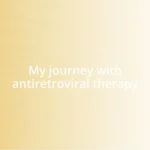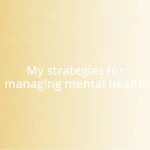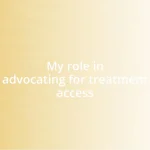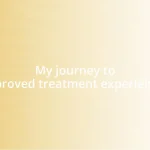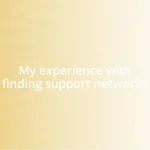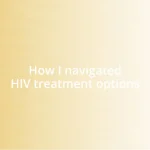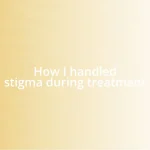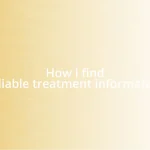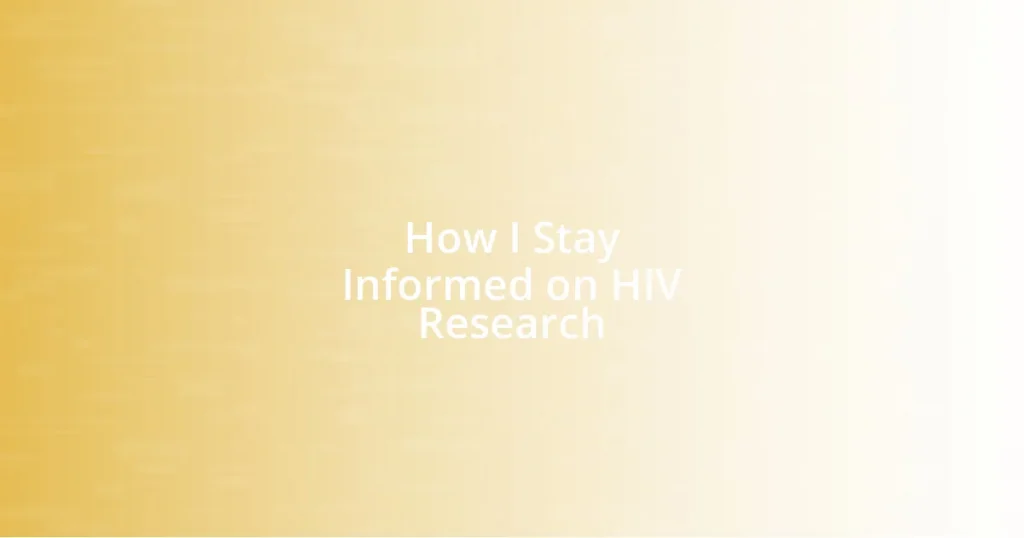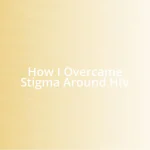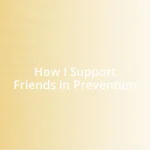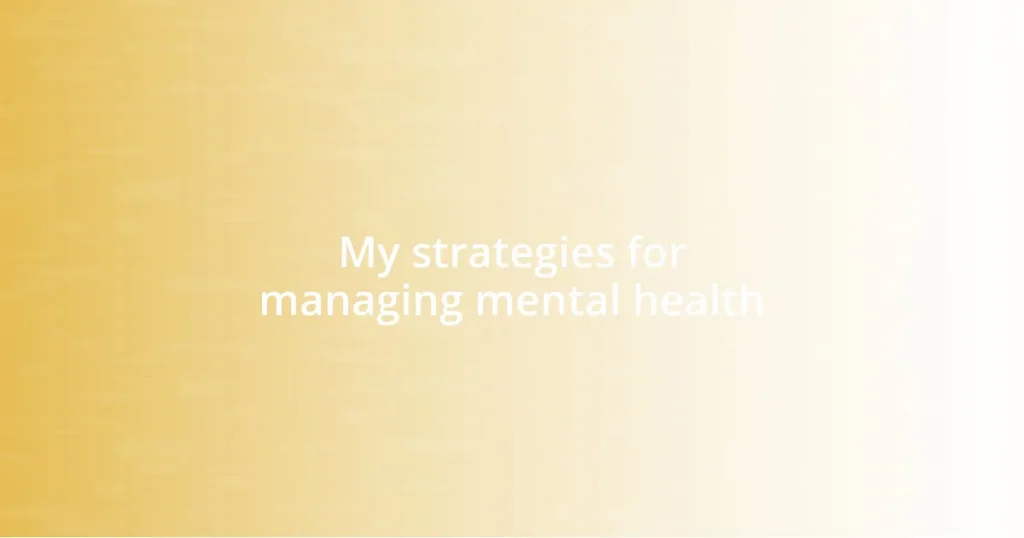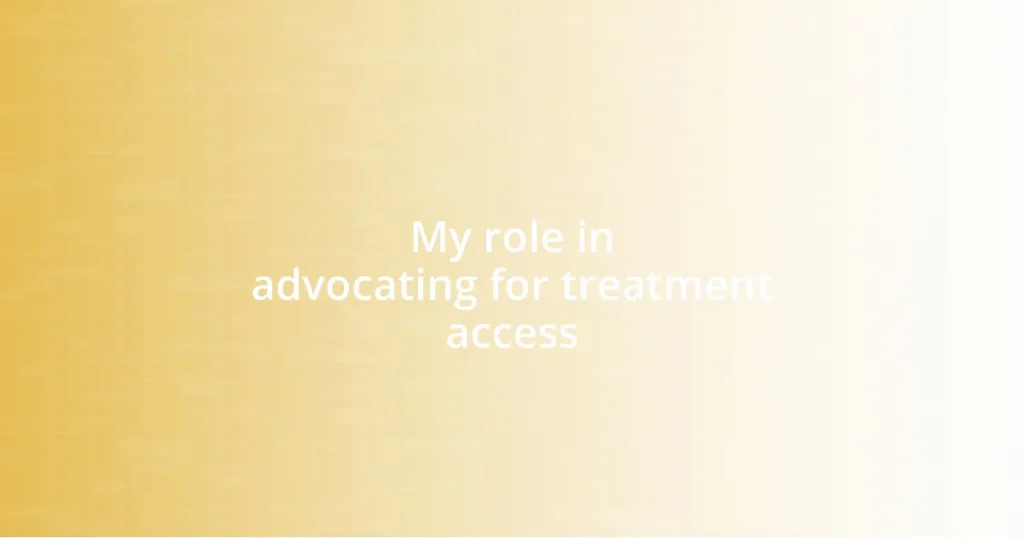Key takeaways:
- Staying updated on HIV research involves engaging with specific studies and community discussions, emphasizing the emotional connection to advancements.
- Utilizing reputable journals and online databases, along with setting up alerts for new publications, is crucial for accessing credible information.
- Networking with healthcare professionals and participating in research communities enriches understanding and fosters collaborative learning in HIV treatment and prevention.
- Attending conferences and webinars provides direct access to cutting-edge research insights while promoting personal connections with experts and peers.
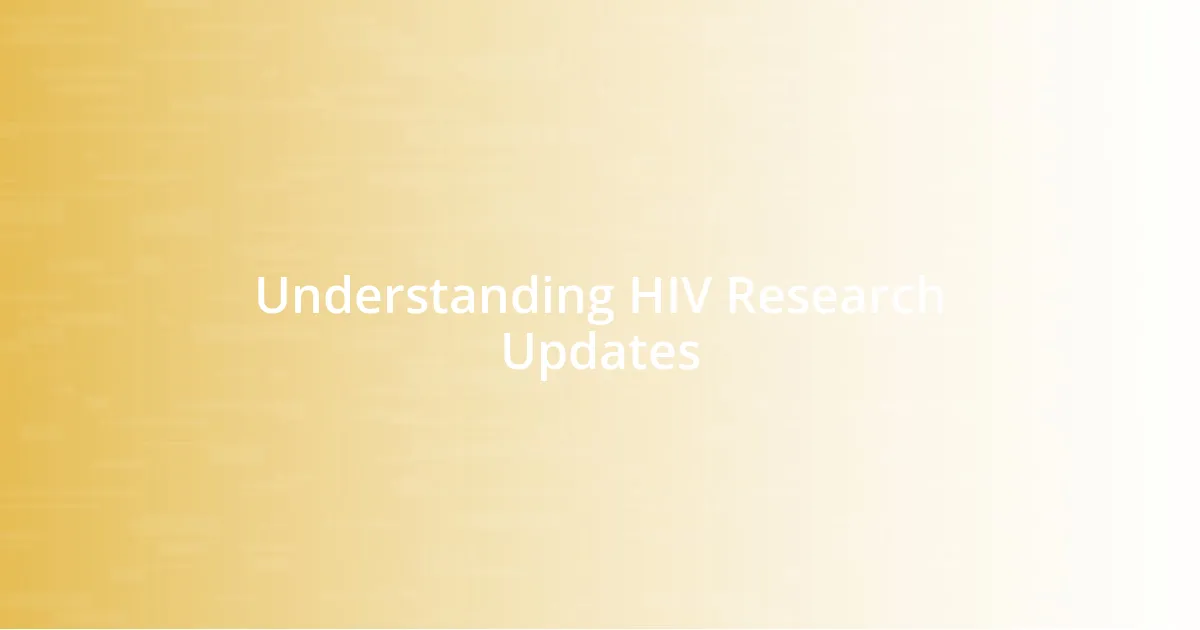
Understanding HIV Research Updates
Staying updated on HIV research can sometimes feel overwhelming, but I find that breaking it down into digestible bits makes it manageable. For instance, I like to dive into specific studies that catch my attention, focusing on their implications rather than getting lost in complex data. Have you ever read a study that completely shifted your understanding of a topic? I know I have, and it’s moments like these that fuel my passion for staying informed.
I remember the first time I stumbled across a groundbreaking study on long-acting injectables for HIV prevention. I felt a rush of hope; the potential to change lives is profound. Research like this not only influences clinical practices but also shapes the narratives around HIV, reminding us that advancements are continuously in the works. What emotions do you feel when you hear success stories in research? For me, it’s a blend of optimism and responsibility to share that knowledge.
Engaging with research updates often means interacting with community forums or attending webinars, where scientists and advocates share real-time developments. These settings allow for emotional connections and foster a sense of solidarity among individuals who are equally invested in the future of HIV treatment and prevention. In these discussions, I’ve learned that every new piece of information can spark important questions—like how can we use this knowledge to make a difference in our communities?
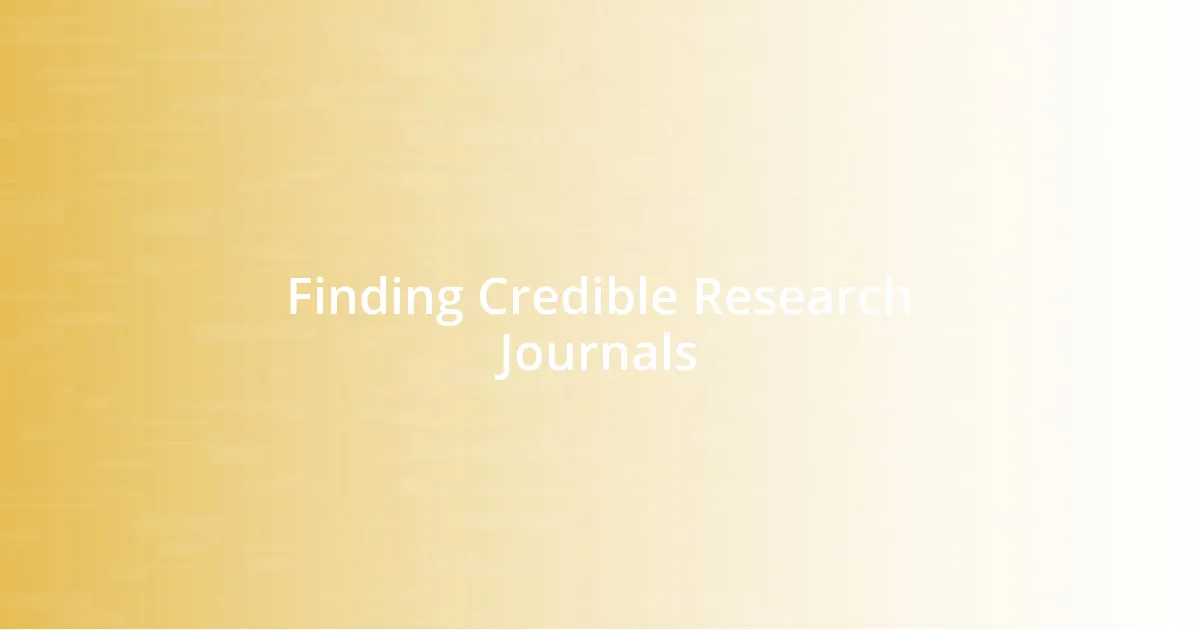
Finding Credible Research Journals
Finding credible research journals can be a game-changer in my quest to stay informed about HIV research. When I’m sifting through articles, I often look for publications that have a strong reputation within the medical community. For example, journals like The Lancet HIV or JAIDS (Journal of Acquired Immune Deficiency Syndromes) have rigorous peer-review processes, which means that the studies published there have been thoroughly vetted. Isn’t it reassuring to know that you’re reading information that experts have scrutinized?
In my experience, I’ve found that exploring multidisciplinary journals, like The Journal of Infectious Diseases, helps me gain a broader perspective on how HIV intersects with other health issues. This kind of research can provide valuable context for HIV treatment and prevention strategies. I remember reading a fascinating review that linked mental health outcomes with treatment adherence. It totally changed how I view the importance of a holistic approach to healthcare. Have you ever considered how interconnected these issues can be?
To further aid in my search, I also pay attention to the impact factor of journals, which reflects how frequently articles are cited in other works. While this isn’t the only metric to consider, it often points to a journal’s influence in the academic world. Balancing this with more niche research that speaks to specific populations or methodologies can be incredibly beneficial. Adapting my strategy based on these insights has helped me stay engaged and informed, along with paving the way for deeper conversations with peers and professionals.
| Journal Name | Reputation |
|---|---|
| The Lancet HIV | High |
| JAIDS | High |
| Journal of Infectious Diseases | Moderate to High |
| Current HIV Research | Moderate |
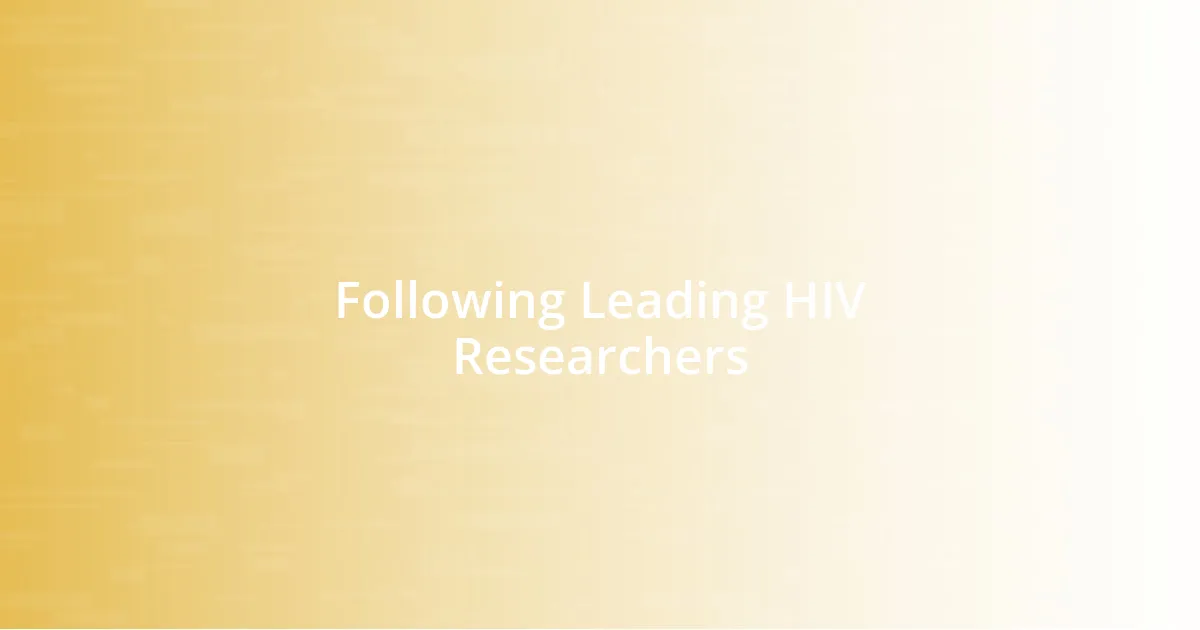
Following Leading HIV Researchers
Following leading HIV researchers is an integral part of my journey to stay informed. I make it a point to follow influential figures in the field on social media platforms like Twitter and LinkedIn. This not only provides me with firsthand updates on their latest findings but also allows me to engage in conversations around their work. I remember feeling a sense of excitement when I received a tweet notification from a prominent researcher discussing their recent study on HIV vaccine development. It felt like I was included in a global dialogue, and in that moment, I realized how connected we all can be in this crucial effort.
To help streamline my followings, I focus on a few specific researchers whose work aligns with my interests. Here’s a list that highlights some of these key figures:
- Dr. Anthony Fauci – A leading voice in infectious disease research and public health policy.
- Dr. Julie Overbaugh – Known for her groundbreaking research on HIV and the immune response.
- Dr. Michael Saag – Focuses on HIV treatment and prevention strategies, providing valuable insights.
- Dr. Linda-Gail Bekker – An advocate for HIV prevention and new treatment methodologies, with a strong community focus.
These researchers not only shape the landscape of HIV research but also inspire me with their dedication. Following their journeys makes me feel part of something larger than myself, pushing the boundaries of what we know about HIV every day.
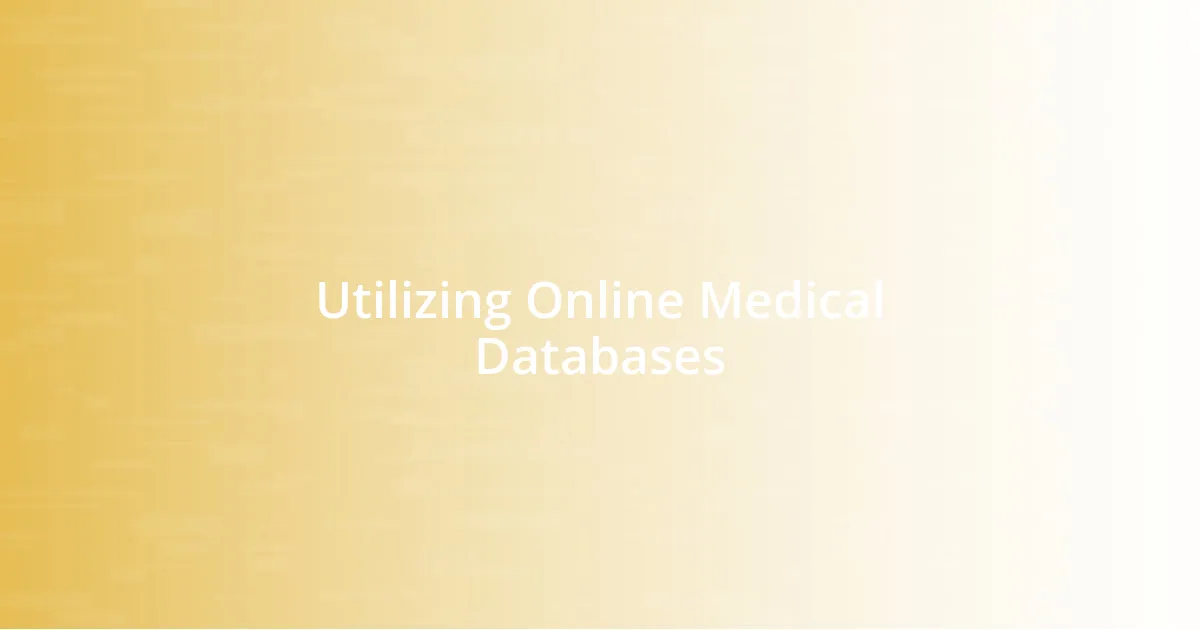
Utilizing Online Medical Databases
Utilizing online medical databases has truly transformed how I stay informed about HIV research. I frequently turn to resources like PubMed and Google Scholar to access a vast trove of research articles. The ability to search for specific keywords, such as “HIV treatment innovations” or “HIV prevention strategies,” allows me to tailor my reading to whatever is most relevant at the moment. Have you ever felt overwhelmed by the sheer volume of research out there? I know I have, but efficient searches can make a world of difference.
One of my favorite features of these databases is the ability to set up alerts for new publications. For instance, when a study on HIV and aging came out recently, I received an alert instantly. It was almost like receiving a personal notification that something groundbreaking was happening. This feature keeps me on my toes and ensures that I’m not missing out on critical developments in the field. What a relief it is to trust that I’m keeping pace with emerging knowledge without having to comb through everything manually.
Moreover, I appreciate how these platforms often provide access to systematic reviews that summarize existing research on particular topics. These reviews can be incredibly helpful in synthesizing complex information in an easily digestible format. I remember diving into a systematic review that analyzed the effectiveness of PrEP in various populations. It was enlightening to see how such a treatment approach performs and where it struggles. It reinforced my belief that understanding the nuances in research is key to informed discussions about HIV. What are your go-to resources for diving deep into the world of HIV research?
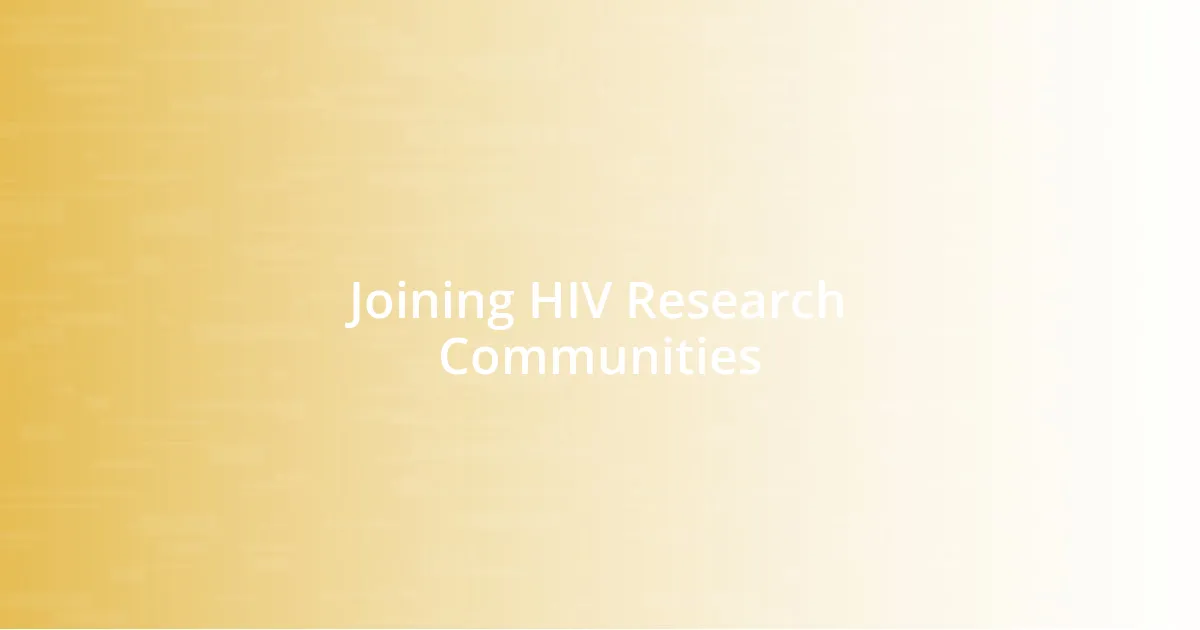
Joining HIV Research Communities
Being part of HIV research communities has been a remarkable experience for me. Joining various online forums and support groups, such as the HIV Vaccine Trials Network, enables me to connect with researchers and individuals directly involved in groundbreaking studies. I recall a time when I participated in a discussion about vaccine trials, and it felt empowering to share insights and ask questions alongside those who are deeply invested in finding solutions.
Not only do these communities offer a wealth of knowledge, but they also foster a sense of belonging. I still remember the warmth I felt during an online webinar led by a seasoned researcher who discussed HIV treatment advancements. The way they openly addressed our concerns and celebrated community engagement was contagious. It highlighted how essential these connections are—not just for information, but also for solidarity in a collective mission to combat HIV.
Engaging in these communities often leads to opportunities I never imagined. I was once fortunate enough to attend a grassroots initiative event where various stakeholders shared their experiences and findings. The energy in the room was electric, and I left inspired by their passion and commitment. Have you ever felt that rush of motivation from being surrounded by likeminded individuals? That’s exactly what these communities provide—a platform for shared learning and relentless hope for a brighter future in HIV research.
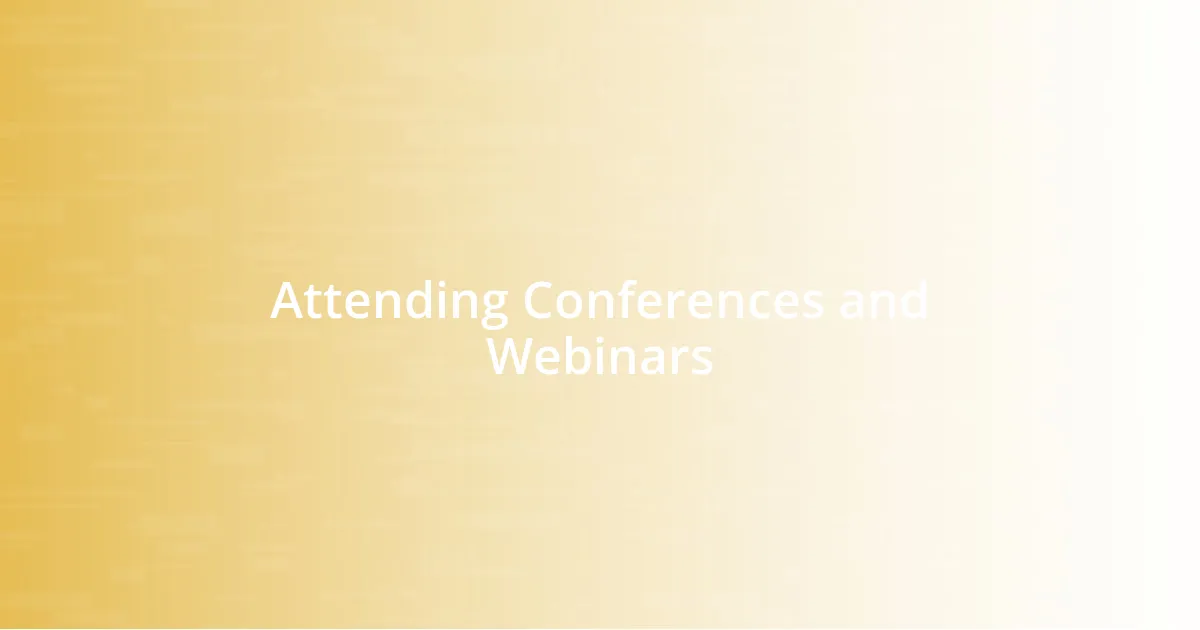
Attending Conferences and Webinars
Attending conferences and webinars has enriched my understanding of HIV research in ways I never anticipated. Just last year, I found myself at an international conference that felt like stepping into a treasure trove of knowledge. Listening to leading scientists share their latest findings was exhilarating, and I walked away with new insights that I could immediately apply in my discussions with peers. Have you ever felt that ‘aha!’ moment when someone presents information that shifts your entire perspective? I certainly did that day.
Webinars are equally rewarding; they offer the convenience of learning from home while still being connected to a global network of experts. I attended a recent webinar on innovative HIV prevention strategies, where a researcher shared their groundbreaking work on microbicides. I remember my curiosity piquing as they presented data that highlighted unexpected outcomes. It’s this kind of engagement that makes me feel like I’m part of something larger—a community working tirelessly to advance our understanding of HIV.
The most heartwarming aspect of these events is the opportunity for personal interaction. I vividly recall chatting with other attendees during a breakout session at a conference. We exchanged ideas, experiences, and concerns, forging connections that extended beyond the event. That’s the beauty of conferences and webinars: they turn abstract information into relatable conversations. Have you ever left an event feeling more inspired than when you arrived? I know I have, and it’s moments like these that truly motivate me to stay informed and engaged in the ever-evolving landscape of HIV research.
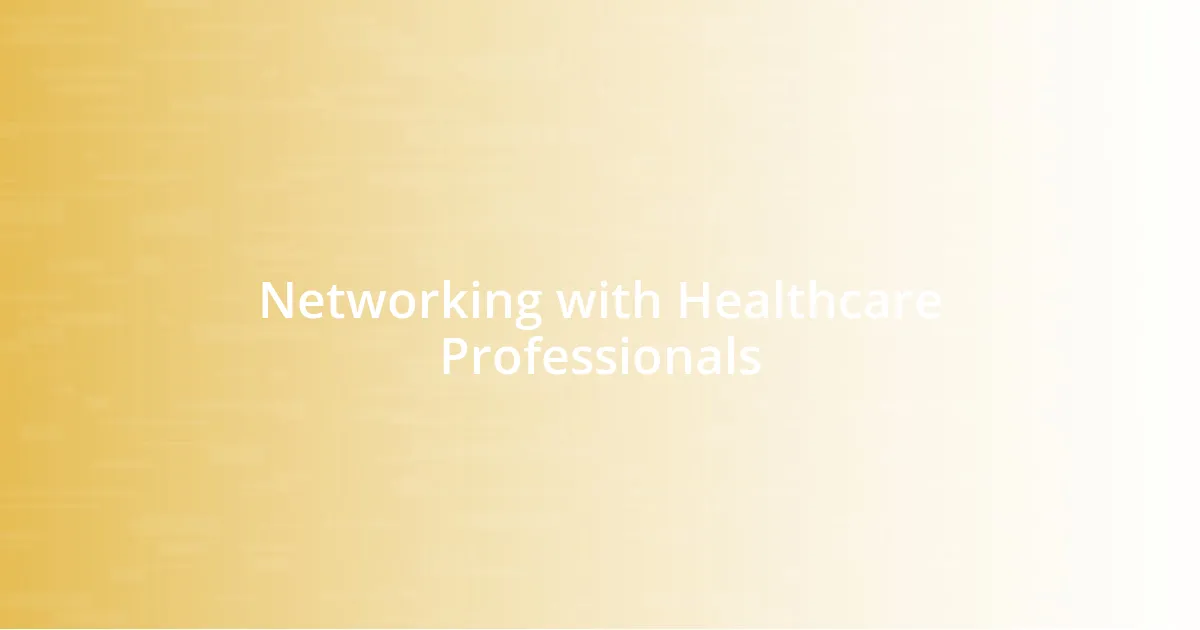
Networking with Healthcare Professionals
Networking with healthcare professionals has truly been a game-changer for me in staying informed about HIV research. I remember a time when I was at a local health fair, and I had the chance to chat with a nurse who specialized in HIV treatment. Her passion was palpable, and it inspired me to dig deeper into the challenges faced by patients. This conversation opened my eyes to nuances in care that statistics alone couldn’t convey, reinforcing the power of personal connection in expanding one’s understanding.
I’ve also found that engaging with healthcare professionals at community events fosters a deeper understanding of their perspectives. For instance, I once attended a panel discussion featuring doctors and researchers discussing new treatment protocols. Listening to their thought processes, I began to appreciate the complexities involved in making decisions about patient care. Isn’t it fascinating how these professionals balance clinical evidence with personal stories of the patients they treat? That insight really grounded my knowledge and made the science come alive in a way that textbooks never could.
Moreover, I’ve had the pleasure of developing ongoing relationships with some of these professionals, which has proven invaluable. After one event, I exchanged contact information with a researcher who was studying HIV resistance patterns. Since then, we’ve had several conversations where I’ve been able to ask questions and share insights on my observations from my own community. Who would have thought that one conversation could lead to such enriching exchanges? These connections enrich my learning experience, reminding me that networking is not just about gathering information; it’s about nurturing relationships that could influence the future of HIV treatment and prevention.
